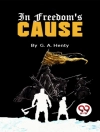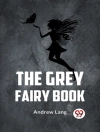Tender Is the Night, Francis Scott Fitzgerald’s last completed novel, intricately weaves the narratives of love, ambition, and the complexities of human relationships against the backdrop of the glamorous yet disillusioning 1920s. Written in a fluid and lyrical prose style, Fitzgerald employs stream-of-consciousness techniques and shifting perspectives to depict the rise and fall of Dick Diver, a charming psychiatrist, and his unraveling marriage to the enigmatic actress Nicole Warren. This literary work dives deep into themes of mental illness, the impact of wealth on personal identity, and the existential despair that pervades a seemingly glittering society. Fitzgerald, often regarded as one of the greatest American authors, was heavily influenced by his experiences within the expatriate community in Europe and the tumultuous nature of his own marriage. The novel reflects the author’s keen observations of the recklessness of the Jazz Age and the inevitable decline that accompanies excess and ambition. With its semi-autobiographical elements, Tender Is the Night captures Fitzgerald’s struggles with his own psychological demons and the constraints of fame. I wholeheartedly recommend Tender Is the Night to readers who seek an introspective exploration of human frailty and the profound disillusionment that can arise from love and success. Fitzgerald masterfully evokes an emotional landscape that resonates with anyone grappling with the duality of aspiration and despair, making this novel a timeless and essential read.
Yazar hakkında
Francis Scott Key Fitzgerald, born on September 24, 1896, was a paramount figure in American literature renowned for his poignant exploration of the Jazz Age’s opulence and its undercurrents of disillusionment. Fitzgerald’s narrative mastery is exemplified in his 1934 novel ‘Tender Is the Night.’ The book details the disintegration of Dick Diver, a charismatic psychiatrist, and his wife, Nicole, against the backdrop of the French Riviera, mirroring the decline of the American dream and Fitzgerald’s own life struggles, including his wife Zelda’s mental illness and his battle with alcoholism. Fitzgerald’s literary style is marked by its eloquence, sharply drawn characters, and his adept handling of complex emotional and societal themes. His works often delve into issues of identity, class, and aspiration, capturing the zeitgeist of the roaring twenties and the Great Depression-era America. While ‘Tender Is the Night’ did not gain immediate commercial success, critical reassessment has cemented its status as a classic, reflecting Fitzgerald’s acute understanding of human frailty. Regrettably, Fitzgerald’s literary output waned with his declining health, and he passed away on December 21, 1940, at the age of 44, not living to see his oeuvre’s enduring impact on American literature. Notwithstanding, Fitzgerald’s novels, short stories, and essays offer an inimitable window into an era’s excesses and its despondent aftermath, and he remains an unrivaled chronicler of the 1920s America.












